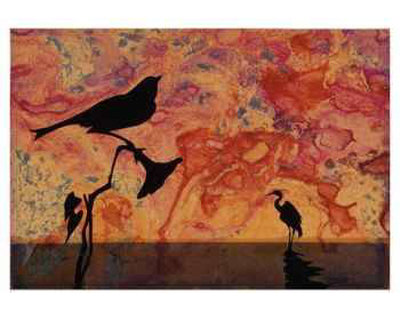I have Amy Clampitt beat by three years. She published her first poetry collection at 63, whereas I was a mere lass of 60 when The Future Is Happy emerged from the womb of BlazeVOX [books].
There comparisons dissolve but they are odious anyway as we all know and mean nothing unless one is writing an essay comparing and contrasting the rise and fall of the Roman Empire with the rise and fall of hula hoops. Then comparisons are pretty cool.
And speaking of beautiful which we weren't but it's time we did, here is one of Amy Climpitt's poems. She's right. "Syntax comes last, there can be / no doubt of it. . ."
Syrinx
Like the foghorn that’s all lung,
the wind chime that’s all percussion,
like the wind itself, that’s merely air
in a terrible fret, without so much
as a finger to articulate
what ails it, the aeolian
syrinx, that reed
in the throat of a bird,
when it comes to the shaping of
what we call consonants, is
too imprecise for consensus
about what it even seems to
be saying: is it o-ka-lee
or con-ka-ree, is it really jug jug,
is it cuckoo for that matter?—
much less whether a bird’s call
means anything in
particular, or at all.
Syntax comes last, there can be
no doubt of it: came last,
can be thought of (is
thought of by some) as a
higher form of expression:
is, in extremity, first to
be jettisoned: as the diva
onstage, all soaring
pectoral breathwork,
takes off, pure vowel
breaking free of the dry,
the merely fricative
husk of the particular, rises
past saying anything, any
more than the wind in
the trees, waves breaking,
or Homer’s gibbering
Thespesiae iache:
those last-chance vestiges
above the threshold, the all-
but dispossessed of breath.
Amy Camplitt, 1920-1994
Illustration by John Ezra Keats

No comments:
Post a Comment